
Port Elizabeth: The Friendly City by the Sea
Discover Port Elizabeth, South Africa's Friendly City by the Sea, offering stunning beaches, rich history, diverse wildlife, and thrilling adventures for all visitors.
Port Elizabeth, fondly known as PE, is a gem on the southeastern coast of South Africa. Famous for its beautiful beaches, it offers a perfect blend of sun, sea, and surf. The city is part of the Nelson Mandela Bay Metro and is a major seaport, providing an inviting atmosphere for tourists looking to relax or explore the rich cultural heritage of the region. A visit to Port Elizabeth is incomplete without a stroll along the Boardwalk, a picturesque waterfront area boasting a variety of shops, restaurants, and entertainment venues. For history enthusiasts, the Donkin Heritage Trail is a must-see, guiding visitors through 47 historical sites in the city's center. Among these, the Donkin Reserve is particularly noteworthy, offering a panoramic view of the city and the harbor. Nature lovers will revel in the diverse wildlife experiences available in and around Port Elizabeth. The Addo Elephant National Park, just a short drive away, is home to over 600 elephants, as well as lions, buffalo, and a variety of bird species. For marine wildlife enthusiasts, a boat trip to spot dolphins and whales in Algoa Bay is a memorable adventure. Port Elizabeth also caters to the adventurous spirit with activities such as scuba diving, snorkeling, and even skydiving. If you prefer a more leisurely pace, the city's numerous parks and botanical gardens provide a serene escape. The South End Museum and the Nelson Mandela Metropolitan Art Museum offer insights into the region's rich cultural and artistic heritage, rounding out a well-rounded visit to this charming city.
Local tips in Port Elizabeth
- Visit during the summer months (December to February) for the best beach weather.
- Rent a car to explore the surrounding areas like Addo Elephant National Park.
- Book boat trips in advance to secure a spot for dolphin and whale watching.
- Try local dishes like biltong and bobotie at local restaurants.
- Wear comfortable shoes when walking the Donkin Heritage Trail.
Port Elizabeth: The Friendly City by the Sea
Port Elizabeth, fondly known as PE, is a gem on the southeastern coast of South Africa. Famous for its beautiful beaches, it offers a perfect blend of sun, sea, and surf. The city is part of the Nelson Mandela Bay Metro and is a major seaport, providing an inviting atmosphere for tourists looking to relax or explore the rich cultural heritage of the region. A visit to Port Elizabeth is incomplete without a stroll along the Boardwalk, a picturesque waterfront area boasting a variety of shops, restaurants, and entertainment venues. For history enthusiasts, the Donkin Heritage Trail is a must-see, guiding visitors through 47 historical sites in the city's center. Among these, the Donkin Reserve is particularly noteworthy, offering a panoramic view of the city and the harbor. Nature lovers will revel in the diverse wildlife experiences available in and around Port Elizabeth. The Addo Elephant National Park, just a short drive away, is home to over 600 elephants, as well as lions, buffalo, and a variety of bird species. For marine wildlife enthusiasts, a boat trip to spot dolphins and whales in Algoa Bay is a memorable adventure. Port Elizabeth also caters to the adventurous spirit with activities such as scuba diving, snorkeling, and even skydiving. If you prefer a more leisurely pace, the city's numerous parks and botanical gardens provide a serene escape. The South End Museum and the Nelson Mandela Metropolitan Art Museum offer insights into the region's rich cultural and artistic heritage, rounding out a well-rounded visit to this charming city.
When is the best time to go to Port Elizabeth?
Iconic landmarks you can’t miss
Addo Elephant National Park
Experience the unparalleled beauty and wildlife of Addo Elephant National Park, a top destination for safari enthusiasts in South Africa.
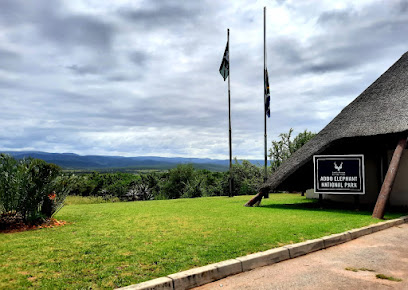
Kragga Kamma Game Park
Experience the untamed beauty of Kragga Kamma Game Park, a premier wildlife park in Gqeberha, where nature and adventure meet.
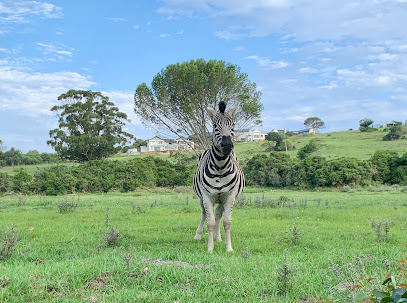
Holmeleigh Farmyard
Immerse yourself in the delightful world of Holmeleigh Farmyard, where farm life and family fun come together in Gqeberha.
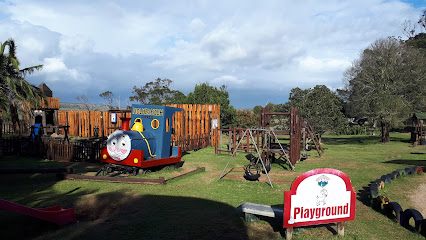
Bayworld
Discover marine marvels and natural history at Bayworld in Gqeberha, a must-visit museum and tourist attraction for all ages.
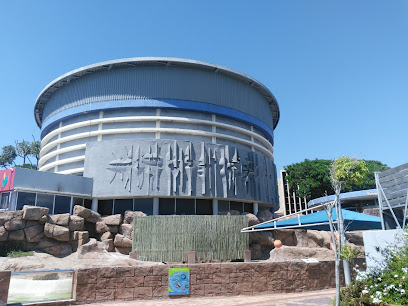
Cape Recife Lighthouse (Est. 1849)
Discover the historic Cape Recife Lighthouse, a stunning coastal landmark perfect for hiking and soaking in breathtaking ocean views.
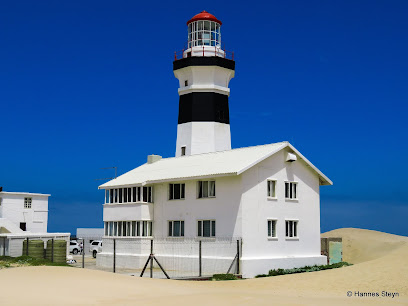
DONKIN RESERVE, PYRAMID AND LIGHTHOUSE
Explore Donkin Reserve in Gqeberha - a historical landmark with stunning views, lush gardens, and rich cultural heritage, perfect for nature lovers and history enthusiasts.
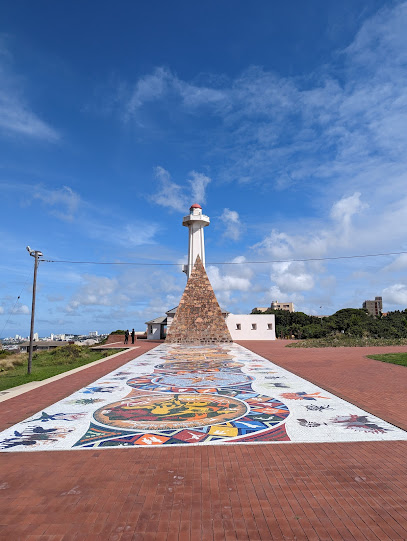
South End Museum
Explore the poignant history and vibrant culture of Gqeberha at the South End Museum - a must-visit destination for every traveler.
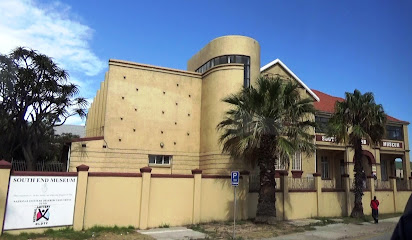
The Campanile
Explore The Campanile, a historic landmark in Port Elizabeth offering stunning harbor views and insights into the city's rich cultural heritage.
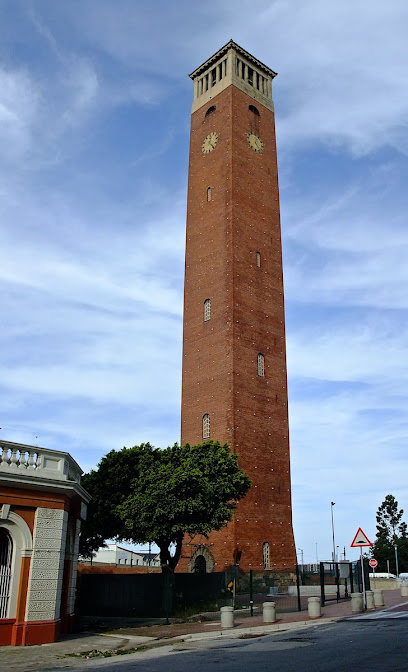
Fort Frederick, Eastern Cape
Explore Fort Frederick, a historic fortress in Gqeberha offering stunning harbor views and rich South African history.
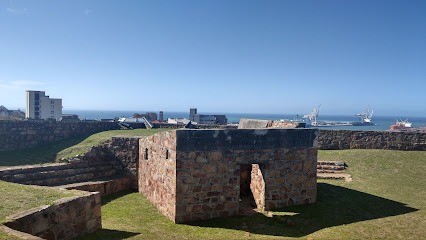
Van Stadens Wild Flower Reserve
Discover the stunning biodiversity and tranquil beauty of Van Stadens Wild Flower Reserve in Gqeberha, a top destination for nature enthusiasts and outdoor adventurers.
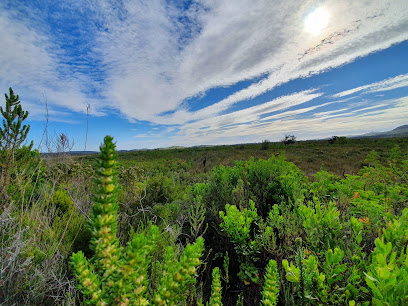
Horse Memorial
Discover the Horse Memorial in Gqeberha, a tribute to the heroic horses of the Anglo-Boer War, surrounded by serene gardens and rich history.
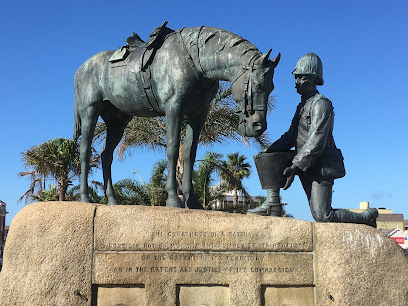
Nelson Mandela Metropolitan Art Museum
Discover the vibrant collections of the Nelson Mandela Metropolitan Art Museum, showcasing South Africa's rich artistic heritage in Gqeberha.
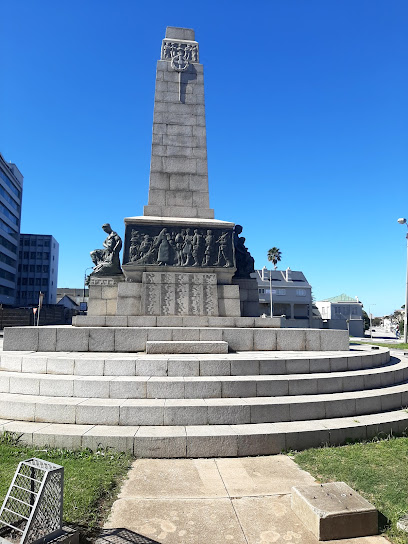
No 7 Castle Hill
Explore the captivating history of Gqeberha at No 7 Castle Hill, a local history museum showcasing the region's rich heritage and culture.
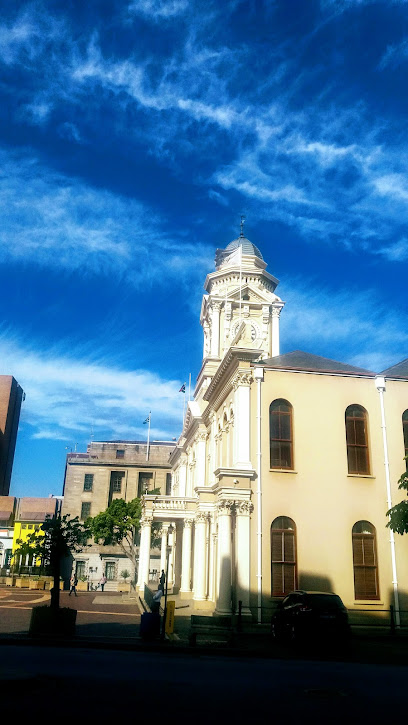
The Island Nature Reserve
Discover the serene beauty of The Island Nature Reserve, a wildlife haven in Gqeberha, perfect for nature lovers and outdoor enthusiasts.
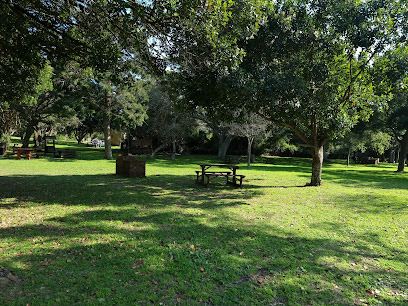
North End Lake
Experience the beauty and tranquility of North End Lake in Gqeberha, a perfect retreat for nature lovers and adventure seekers alike.
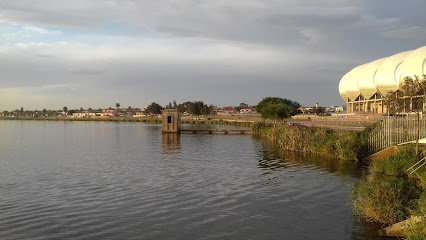
Unmissable attractions to see
Kragga Kamma Game Park
Discover wildlife and nature at Kragga Kamma Game Park, a premier destination in Gqeberha offering thrilling safaris and breathtaking landscapes.
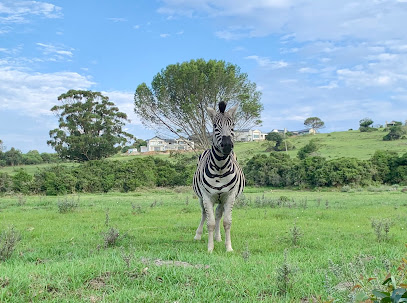
Start of Sacramento Trail
Discover the Start of the Sacramento Trail in Schoenmakerskop, a stunning coastal hike with breathtaking views and rich biodiversity.
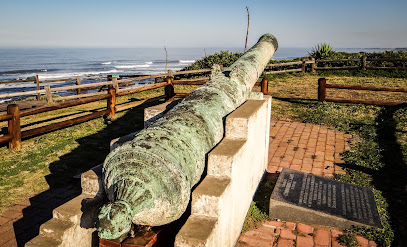
Happy Valley
Explore Happy Valley, Gqeberha's scenic park and beach destination, offering relaxation, vibrant culture, and breathtaking ocean views.
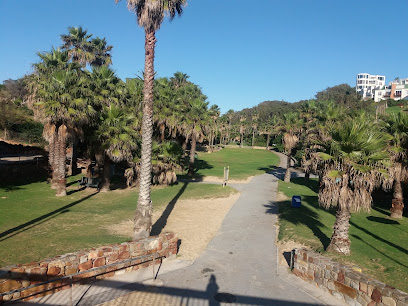
Bayworld
Discover the wonders of marine life and local history at Bayworld, a unique attraction in Gqeberha, South Africa, ideal for family adventures and educational experiences.
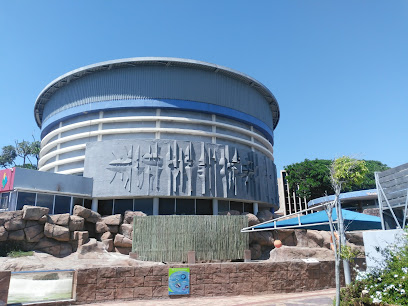
Botanical Gardens
Discover the exquisite beauty of St. Vincent's Botanical Gardens, a lush paradise filled with diverse flora and rich history, perfect for nature lovers.
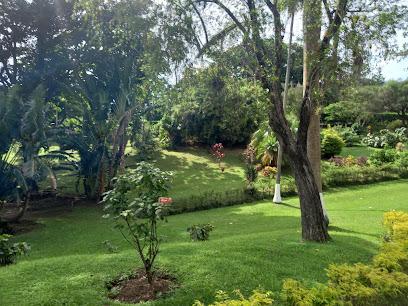
Cape Recife Lighthouse (Est. 1849)
Explore the historic Cape Recife Lighthouse, a stunning coastal landmark in Gqeberha, offering breathtaking views and scenic hiking trails.
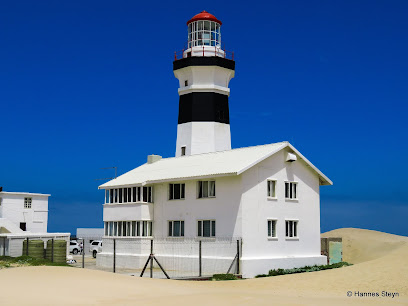
AutoPavilion
Explore AutoPavilion in Kariega, South Africa - a unique automotive museum showcasing classic cars and interactive exhibits for all ages.
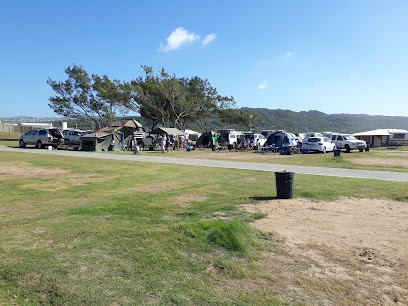
Fort Charlotte
Explore Fort Charlotte, a historic site in Clare Valley, showcasing stunning architecture and breathtaking views of Kingstown and the Caribbean Sea.
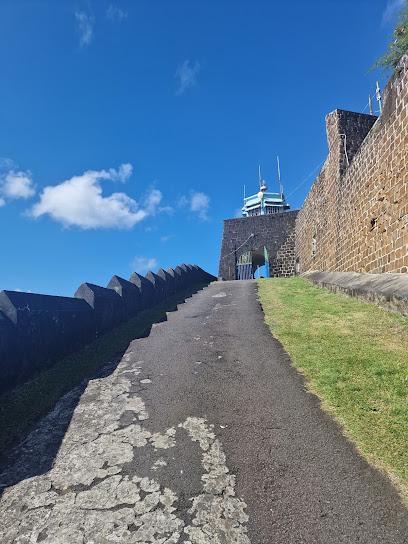
DONKIN RESERVE, PYRAMID AND LIGHTHOUSE
Explore Donkin Reserve in Gqeberha - a blend of nature, history, and stunning views, perfect for leisurely walks and cultural experiences.
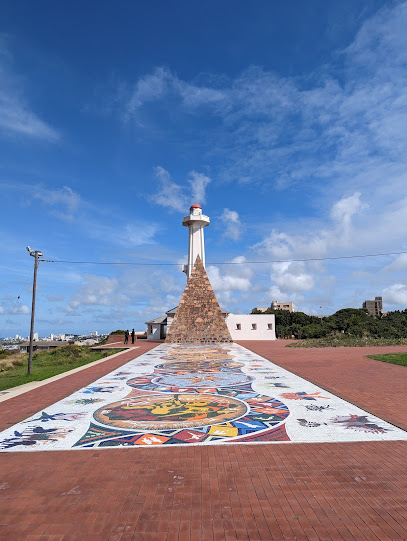
Shark Rock Pier
Discover the enchanting beauty of Shark Rock Pier in Summerstrand, Gqeberha, a perfect blend of leisure, adventure, and stunning ocean views.
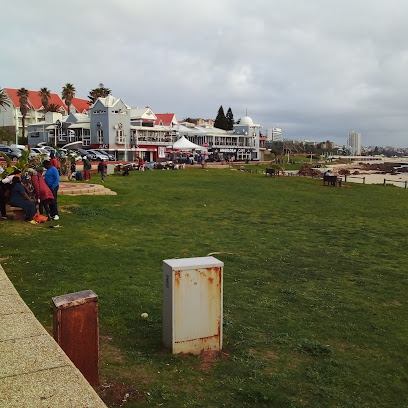
South African Air Force Museum, Port Elizabeth Branch
Discover the rich aviation history of South Africa at the South African Air Force Museum in Gqeberha, featuring a diverse collection of historic aircraft.
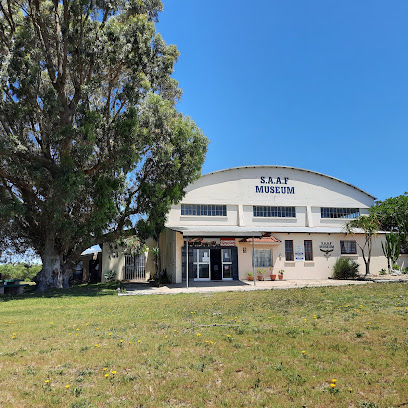
South End Museum
Uncover the compelling stories of resilience and culture at the South End Museum in Gqeberha, a must-visit tourist attraction.
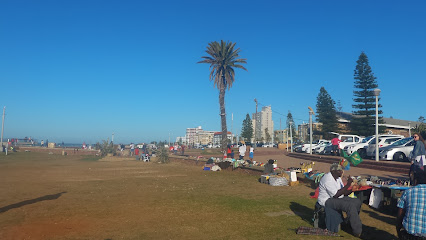
Owia Salt Pond
Explore the stunning Owia Salt Pond in St. Vincent, a natural attraction perfect for swimming, snorkeling, and enjoying the beauty of the Caribbean coastline.
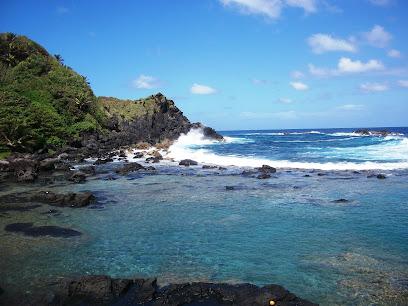
The Campanile
Discover the rich history and breathtaking views at The Campanile, a historic landmark in Gqeberha's vibrant landscape.
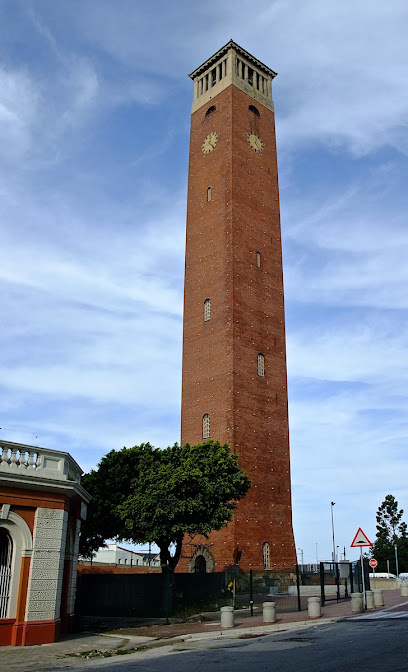
Fort Frederick, Eastern Cape
Discover the rich history and panoramic views at Fort Frederick, a must-visit fortress in Gqeberha, Eastern Cape.
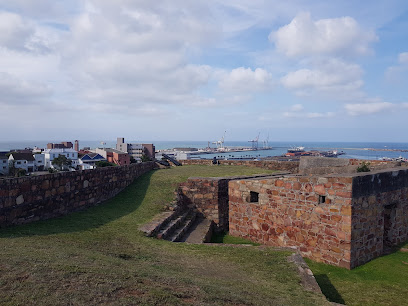
Essential places to dine
Something Good Roadhouse
Discover flavorful delights at Something Good Roadhouse in Gqeberha; where great food meets breathtaking ocean views.
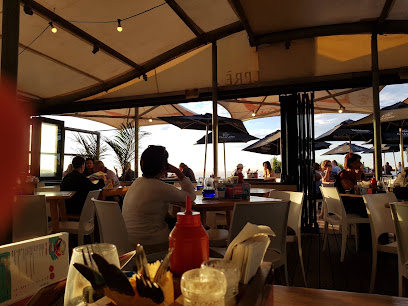
This Is Eat
Discover unique flavors at This Is Eat in Gqeberha - home of the best fish and chips you'll ever taste!
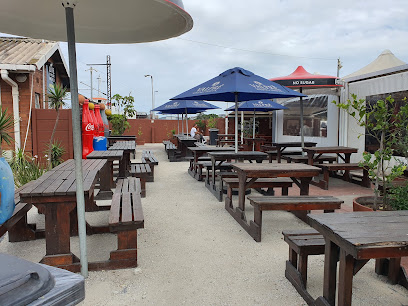
BeerShack
Discover BeerShack: A dynamic grill, club & pub in Humewood offering mouthwatering dishes & vibrant nightlife experiences.
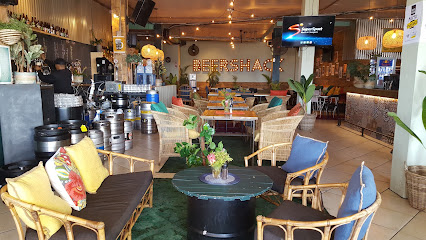
Barney's Tavern
Discover delicious meals and vibrant nightlife at Barney's Tavern along Gqeberha's stunning beachfront.
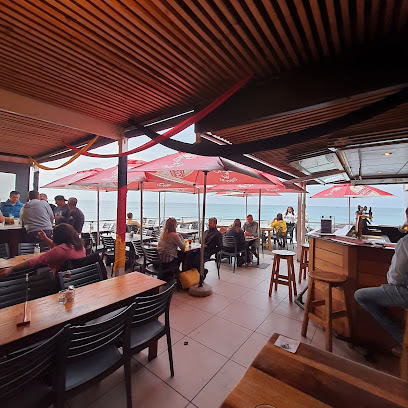
Ocean Basket Brookes On The Bay
Discover delicious seafood at Ocean Basket Brookes On The Bay – where Mediterranean flavors meet family-friendly dining by the sea.
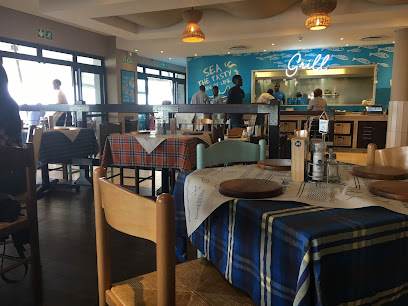
Bocadillos Restaurant & Bakery
Discover Bocadillos Restaurant & Bakery in Gqeberha: A haven for food lovers seeking fresh baked goods and hearty meals amidst charming surroundings.
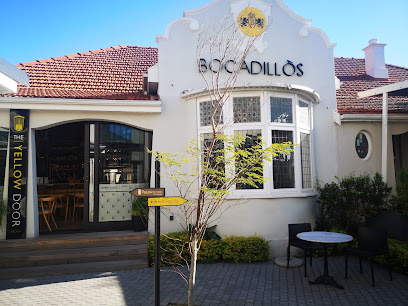
The Coachman Restaurant
Discover the exquisite flavors of South Africa at The Coachman Restaurant in Summerstrand, Gqeberha - where every meal is a celebration.
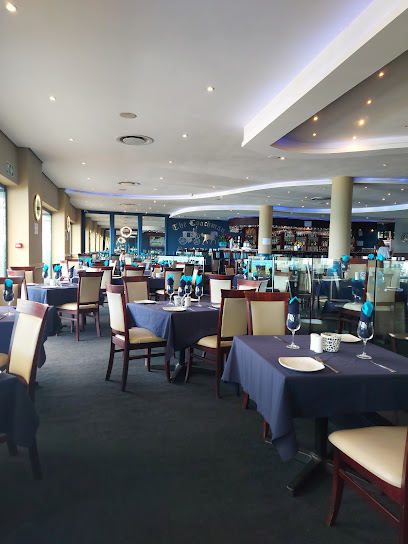
Beer Yard
Discover Beer Yard in Gqeberha - where delicious grill meals meet an extensive selection of local and international beers.
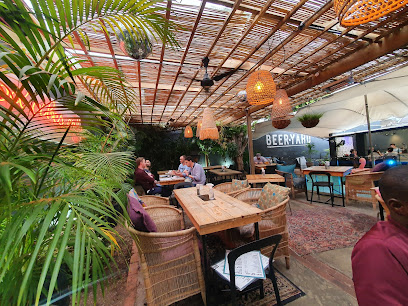
Black Impala Tshisanyama
Experience authentic South African cuisine at Black Impala Tshisanyama in Gqeberha – where every meal is a celebration of flavor.
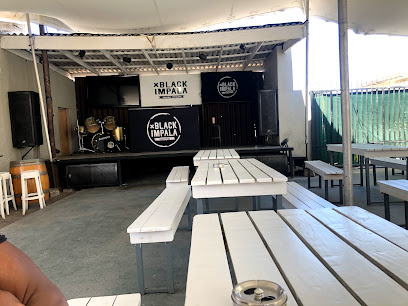
Salt Restaurant
Experience the vibrant flavors of Gqeberha at Salt Restaurant – where local ingredients meet innovative cuisine in a welcoming atmosphere.
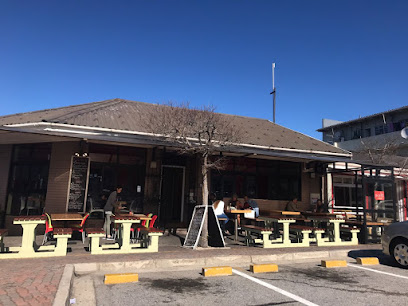
Barnacles Restaurant
Experience exquisite seafood dining with stunning ocean views at Barnacles Restaurant in Gqeberha.
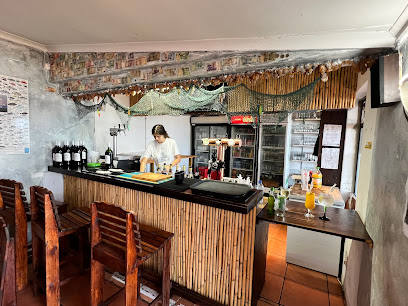
The Hussar Grill Walmer
Experience the ultimate steak indulgence at The Hussar Grill Walmer - where flavor meets tradition in every bite.
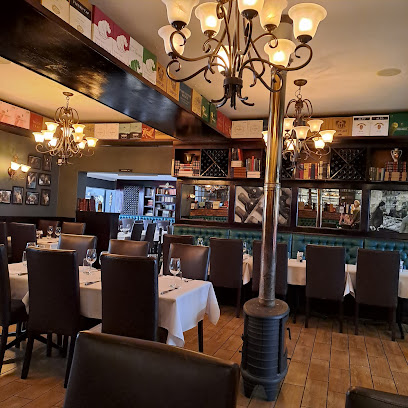
Mike's Kitchen
Experience delicious steaks and family-friendly dining at Mike's Kitchen in Humewood, Gqeberha—perfect for tourists seeking great food.
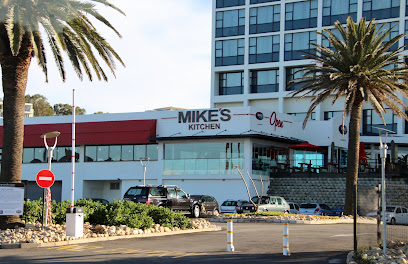
Remo's Italian
Experience authentic Italian cuisine in the heart of Gqeberha at Remo's Italian - where every meal is a celebration of flavor.
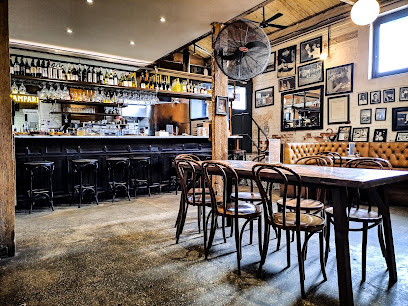
Barn & Barrel
Discover the culinary delights of Barn & Barrel in Gqeberha—a perfect blend of exquisite dining and fine wines in a charming atmosphere.
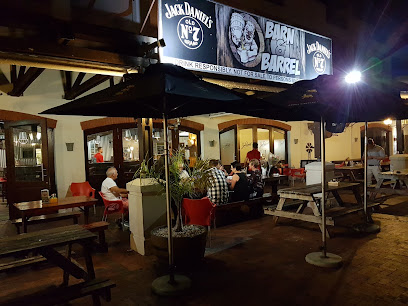
Markets, malls and hidden boutiques
Greenacres Shopping Centre
Explore the best shopping and dining experiences at Greenacres Shopping Centre in Gqeberha, South Africa, perfect for every tourist's itinerary.
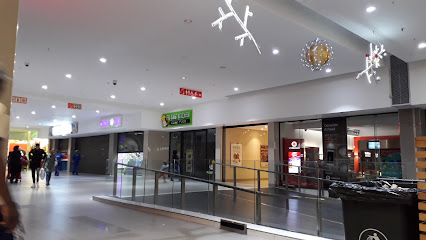
Baywest Mall
Discover the ultimate shopping experience at Baywest Mall in Gqeberha, where everyday essentials meet luxury in a vibrant atmosphere.
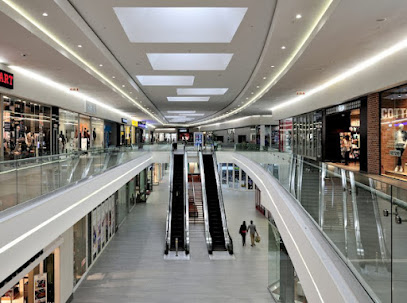
Walmer Park Shopping Centre
Experience the vibrant shopping and dining at Walmer Park Shopping Centre, your ultimate retail destination in Gqeberha.
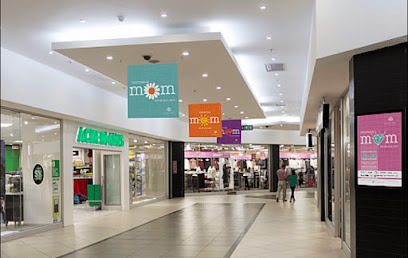
Boardwalk Mall
Experience the lively atmosphere of Boardwalk Mall, Gqeberha's premier shopping destination with diverse stores, dining, and entertainment.
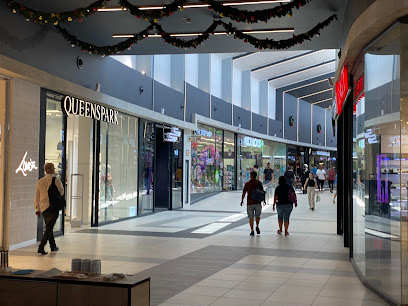
Greenacres Port Elizabeth
Uncover a world of shopping and dining at Greenacres Port Elizabeth, where retail therapy meets local culture in a vibrant atmosphere.

Sixth Avenue Shopping Centre
Discover the charm of Gqeberha at Sixth Avenue Shopping Centre, a vibrant hub for shopping, dining, and entertainment.
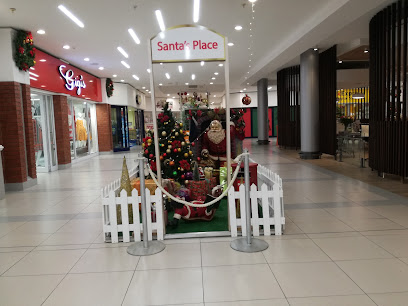
Metlife Mall Shopping Centre
Explore Metlife Mall Shopping Centre in Gqeberha for an unforgettable shopping and dining experience blending local flavors with global brands.
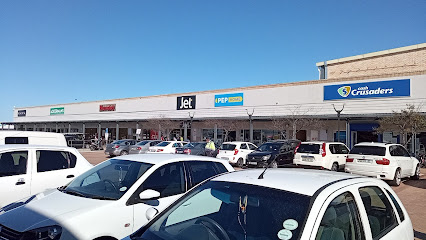
YSL MOMENTS
Explore YSL Moments in Gqeberha for unique gifts and local craftsmanship that capture the essence of South Africa's vibrant culture.
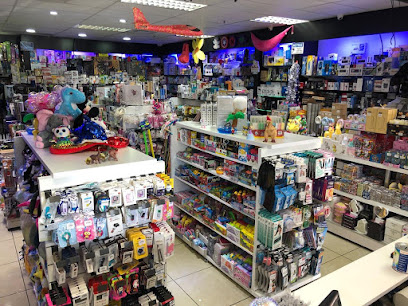
Wezandla African Craft Traders
Discover authentic African craftsmanship and immerse yourself in the rich culture at Wezandla African Craft Traders in Gqeberha.
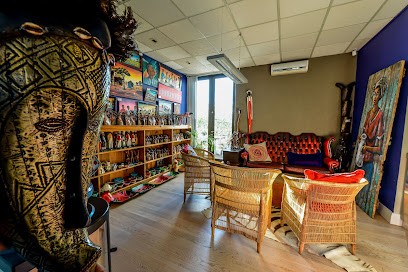
Taj Islamic Centre
Discover the Taj Islamic Centre, a cultural gem in Gqeberha offering a unique selection of Islamic gifts, books, and clothing for every traveler.
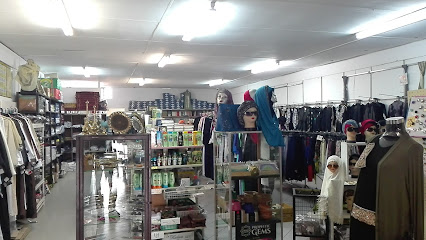
Mooiste Boutique
Explore Mooiste Boutique in Gqeberha for exceptional clothing and stunning jewelry that celebrate local craftsmanship and contemporary fashion.
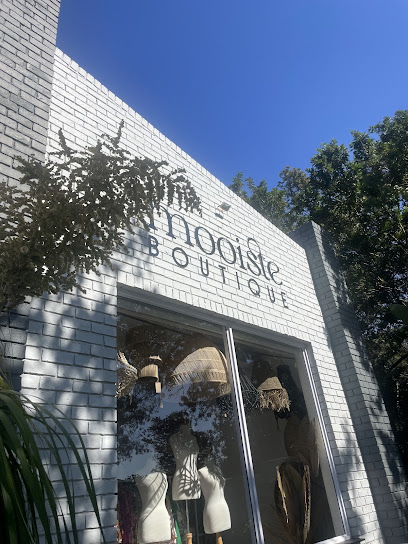
VINTAGE PE
Explore the eclectic fashion of Gqeberha at Vintage PE, where unique clothing and accessories await every visitor.
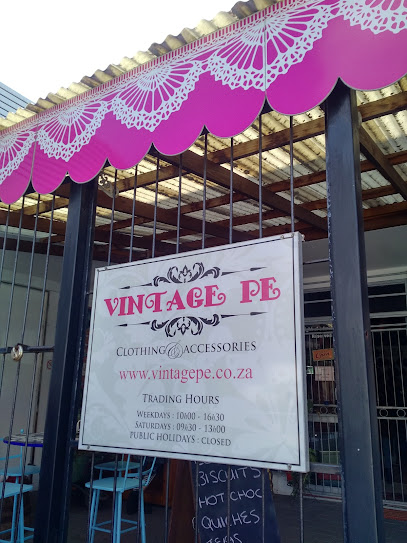
Locally Yours Shop
Explore Locally Yours Shop in Gqeberha for unique gifts and souvenirs that celebrate South African craftsmanship and culture.
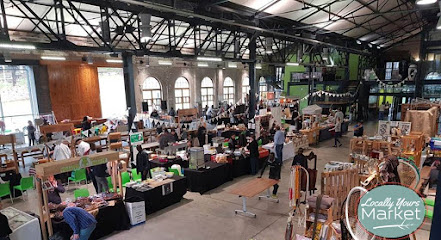
The Backroom
Explore The Backroom, a charming women's clothing store in Walmer, offering unique second-hand fashion treasures for every style.
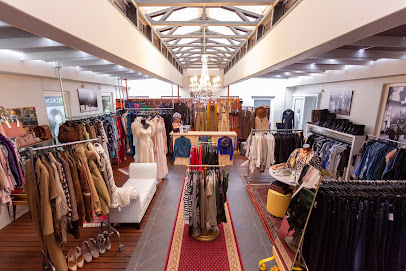
Bohogirl Boutique (Pty) Ltd
Explore Bohogirl Boutique in Gqeberha for unique fashion and lifestyle pieces that capture the essence of South African style.
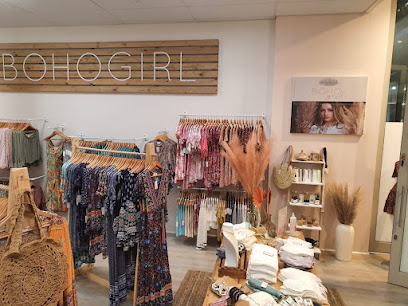
Essential bars & hidden hideouts
BeerShack
Experience the vibrant atmosphere and delicious grilled delights at BeerShack in Gqeberha - the perfect spot for food lovers and nightlife enthusiasts.
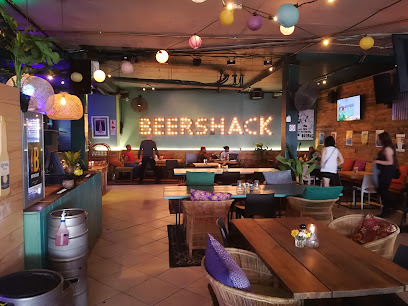
Barney's Tavern
Discover the vibrant atmosphere and stunning ocean views at Barney's Tavern, the perfect coastal bar and restaurant in Gqeberha.
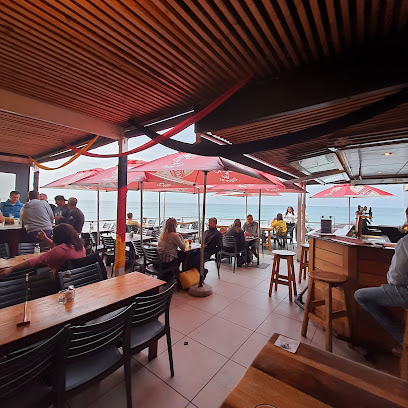
Beer Yard
Delight in the flavorful grill dishes and extensive craft beer selection at Beer Yard, a premier dining hotspot in Gqeberha.
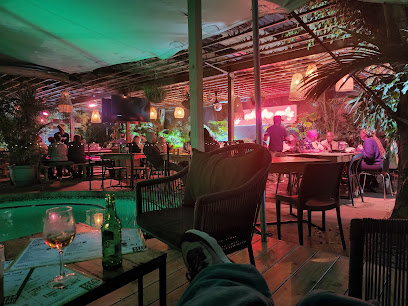
Barn & Barrel
Discover Barn & Barrel in Gqeberha - a restaurant and wine bar offering exquisite cuisine and an extensive selection of fine wines for an unforgettable dining experience.
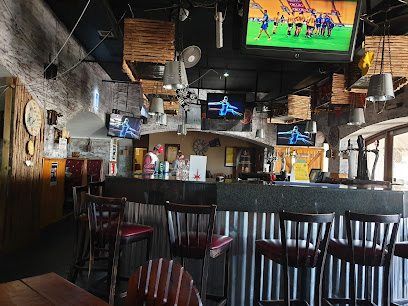
Ziggy's R&R Bar
Experience the perfect blend of relaxation and vibrant coastal atmosphere at Ziggy's R&R Bar, a must-visit dining destination in Summerstrand.
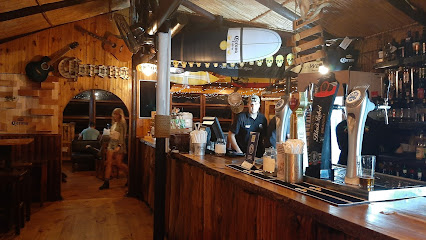
White Tiger Bar+Cafe
Discover the lively ambiance and delightful flavors at White Tiger Bar+Cafe in the heart of Gqeberha's Humewood.
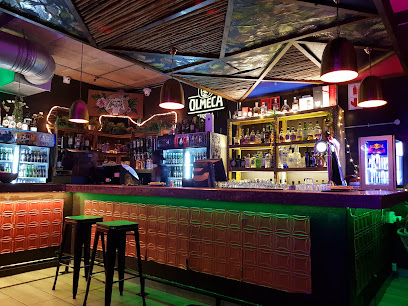
The Wild Hog Pub & Grill
Discover The Wild Hog Pub & Grill in Gqeberha for a perfect blend of delicious food, local brews, and vibrant entertainment in a cozy atmosphere.
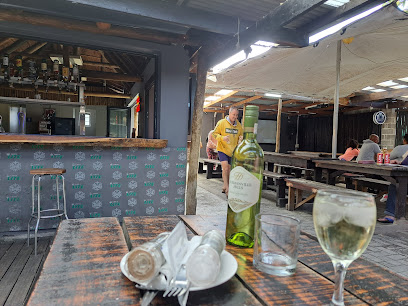
Three Legged Pig
Discover the vibrant atmosphere and mouthwatering dishes at the Three Legged Pig in Gqeberha, where local flavors meet delightful hospitality.
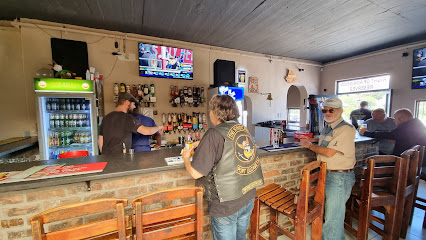
The Golden Duck
Experience the vibrant atmosphere and extensive drink menu at The Golden Duck, the perfect bar for unwinding in Gqeberha.
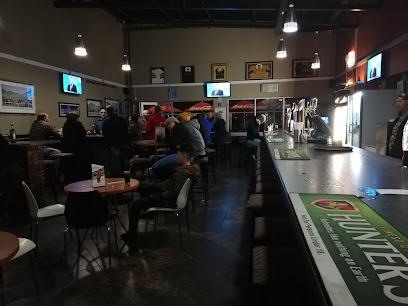
Palacio
Experience the lively nightlife of Gqeberha at Palacio, a vibrant bar offering an extensive drink menu and a welcoming atmosphere.
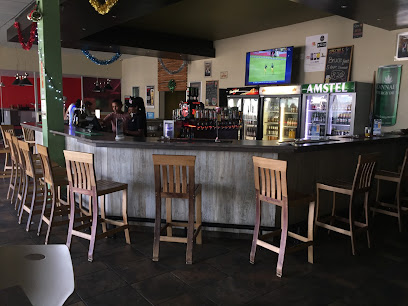
The Blinking Owl
Discover the lively spirit of The Blinking Owl, a premier pub in Gqeberha, perfect for drinks, entertainment, and unforgettable nights.
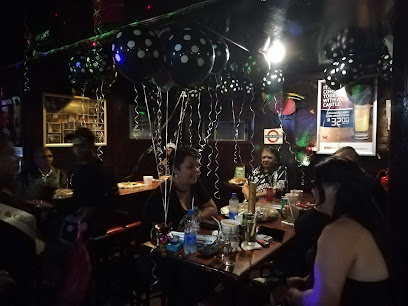
Solid & Stripe Pool Bar
Discover the lively nightlife at Solid & Stripe Pool Bar in Gqeberha, where sports, music, and socializing come together for an unforgettable experience.
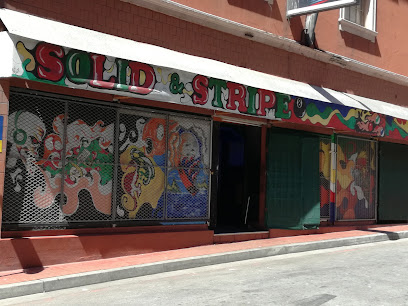
Tamz Restaurant And Bar
Experience the vibrant flavors of Tamz Restaurant And Bar in Gqeberha, where local cuisine meets international flair in a lively setting.
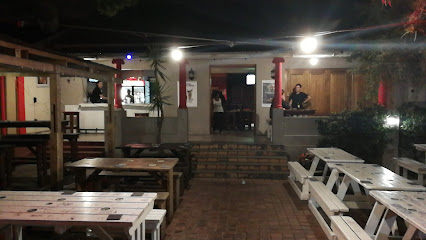
Cosmos Cocktail Bar & Eatery
Experience vibrant nightlife and culinary delights at Cosmos Cocktail Bar & Eatery, Gqeberha's premier destination for food and drinks.
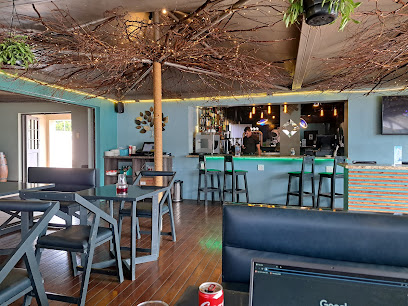
Local Phrases
-
- HelloMolo
[moh-loh] - GoodbyeSala kakuhle
[sah-lah kah-koo-leh] - YesEwe
[eh-weh] - NoHayi
[hah-yee] - Please/You're welcomeNceda
[n-chay-dah] - Thank youEnkosi
[en-koh-see] - Excuse me/SorryUxolo
[oo-koh-loh] - How are you?Unjani?
[oon-jah-nee] - Fine. And you?Ndicela, wena?
[n-dee-seh-lah, way-nah] - Do you speak English?Ukhuluma isiNgisi?
[oo-khoo-loo-mah ee-see-ngi-see] - I don't understandAndiqondi
[ahn-dee-kohn-dee]
- HelloMolo
-
- I'd like to see the menu, pleaseNdicela ukubona imenyu, nceda
[n-dee-seh-lah oo-koo-boh-nah ee-men-yoo, n-chay-dah] - I don't eat meatAndiyityi inyama
[ahn-dee-yee-tee ee-nyah-mah] - Cheers!Iqiniso!
[ee-kee-nee-soh] - I would like to pay, pleaseNdicela ukuphumelela, nceda
[n-dee-seh-lah oo-koo-poo-meh-leh-lah, n-chay-dah]
- I'd like to see the menu, pleaseNdicela ukubona imenyu, nceda
-
- Help!Nceda!
[n-chay-dah] - Go away!Hamba!
[hahm-bah] - Call the Police!Vula iPolisa!
[voo-lah ee-poh-lee-sah] - Call a doctor!Vula umthengisi!
[voo-lah oom-tehn-gi-see] - I'm lostNdikhohlwa
[n-dee-khoh-lwah] - I'm illNdibolekile
[n-dee-boh-leh-kee-leh]
- Help!Nceda!
-
- I'd like to buy...Ndicela ukuthenga...
[n-dee-seh-lah oo-koo-tehn-gah] - I'm just lookingNdibonisa kuphela
[n-dee-boh-nee-sah koo-peh-lah] - How much is it?Yimalini?
[yee-mah-lee-nee] - That's too expensiveLeyo iyakwazi
[leh-yoh ee-yah-kwah-zee] - Can you lower the price?Uyakwenza ngesixhobo?
[oo-yah-kwehn-zah n-heh-see-koh-boh]
- I'd like to buy...Ndicela ukuthenga...
-
- What time is it?Yintoni ixesha?
[yee-n-toh-nee ee-keh-shah] - It's one o'clockYi kweyi-nye yekusasa
[yee kweh-yee-nyeh yeh-koo-sah-sah] - Half past (10)Ikamva lesithathu
[ee-kahm-vah leh-see-tah-thoo] - MorningEmini
[eh-mee-nee] - AfternoonLinde
[leen-deh] - EveningUbusuku
[oo-boo-soo-koo] - YesterdayIzolo
[ee-zoh-loh] - TodayNamhlanje
[nahm-lahn-jeh] - TomorrowKusasa
[koo-sah-sah] - 1Kunye
[koo-nyeh] - 2Kwome
[kwaw-meh] - 3Kwethathu
[kweh-tah-thoo] - 4Kwane
[kwah-neh] - 5Kwahlanu
[kwah-lah-noo] - 6Isithandathu
[ee-see-tahn-dah-thoo] - 7Isikhombisa
[ee-see-khohm-bee-sah] - 8Isishiyagalolunye
[ee-see-shee-yah-gah-loh-loo-nyeh] - 9Isishiyagalombini
[ee-see-shee-yah-gah-lohm-bee-nee] - 10Kwamashumi
[kwah-mah-shoo-mee]
- What time is it?Yintoni ixesha?
-
- Where's a/the...?Lapho kukhona...
[lah-poh koo-khoh-nah] - What's the address?Yeyiphi iindawo?
[yeh-yee-pee ee-in-dah-woh] - Can you show me (on the map)?Unokundibonisa (emephu)?
[oo-noh-koo-n-dee-boh-nee-sah eh-meh-poo] - When's the next (bus)?Kubani ethatha okulandelayo?
[koo-bah-nee eh-tah-tah oh-koo-lahn-deh-lah-yoh] - A ticket (to ....)Itikiti (kwi ....)
[ee-tee-kee-tee kwee]
- Where's a/the...?Lapho kukhona...
History of Port Elizabeth
-
Port Elizabeth, often referred to as the 'Friendly City,' was founded in 1820 by British settlers. Named in honor of Sir Rufane Donkin's late wife, Elizabeth, the city quickly grew as a key port and settlement area in the Eastern Cape. The arrival of the settlers marked a significant moment in the city's history, laying the groundwork for its development.
-
In 1820, around 4,000 British settlers arrived in Port Elizabeth as part of a government-sponsored colonization scheme. These settlers played a crucial role in the growth of the city, bringing with them skills, culture, and traditions from their homeland. Their arrival is commemorated by the 1820 Settlers Monument, a prominent landmark in the city.
-
By the mid-19th century, Port Elizabeth had established itself as a major hub for the wool industry. The city's strategic location and excellent harbor facilities made it an ideal center for exporting wool, contributing significantly to the regional economy. This period of economic prosperity led to an influx of wealth and the construction of many fine buildings, some of which still stand today.
-
Port Elizabeth's Bo-Kaap area is a testament to the city's rich cultural tapestry. Originally home to freed slaves, this vibrant neighborhood showcases Cape Malay heritage, with its brightly colored houses, mosques, and unique cuisine. The diverse communities in Port Elizabeth have contributed to a rich cultural mosaic that is reflected in the city's festivals, art, and daily life.
-
During both World Wars, Port Elizabeth played a vital role as a strategic military port. The city's harbor was used extensively for the movement of troops, supplies, and equipment. The remnants of military installations and memorials, such as the Prince Alfred's Guard Memorial, provide insight into this period of the city's history.
-
Port Elizabeth was significantly affected by the policies of apartheid. The city witnessed numerous anti-apartheid protests and was home to influential activists. The Red Location Museum serves as a poignant reminder of the struggles and resilience of those who fought against racial segregation and oppression in South Africa.
-
In 2001, the municipality of Port Elizabeth was renamed Nelson Mandela Bay in honor of the iconic anti-apartheid leader and former President of South Africa. This change reflects the city's commitment to embracing its diverse heritage and honoring the legacy of Nelson Mandela. The Nelson Mandela Metropolitan Art Museum and other cultural institutions celebrate this renewed identity.
-
Today, Port Elizabeth is a vibrant city known for its friendly residents, beautiful beaches, and rich history. The redevelopment of the waterfront area, along with numerous cultural and historical attractions, makes it a popular destination for tourists. The city's blend of colonial architecture, modern amenities, and scenic beauty continues to attract visitors from around the world.
Port Elizabeth Essentials
-
Port Elizabeth, also known as Gqeberha, is served by the Chief Dawid Stuurman International Airport, located approximately 5 kilometers from the city center. The airport has domestic flights from major South African cities such as Johannesburg, Cape Town, and Durban. International travelers typically connect through these cities. Alternatively, you can reach Port Elizabeth by road via the N2 or N10 highways, or by train with services provided by Shosholoza Meyl.
-
Port Elizabeth offers various transportation options. Metered taxis and ride-hailing services like Uber are widely available. The city has a network of minibus taxis, but these can be crowded and less reliable. Car rental services are available at the airport and in the city, providing the flexibility to explore surrounding areas. Public buses operated by Algoa Bus Company serve key routes within the city.
-
The official currency is the South African Rand (ZAR). Credit and debit cards are widely accepted in most hotels, restaurants, and shops. ATMs are readily available throughout the city, and it's advisable to carry some cash for smaller vendors and tips. Currency exchange services can be found at the airport and in major shopping centers.
-
Port Elizabeth is generally safe for tourists, but it's important to stay vigilant. Avoid walking alone at night, especially in less populated areas. Neighborhoods such as Central Hill and certain parts of North End have higher crime rates. It’s advisable to stick to well-known tourist areas and avoid displaying valuables. Use secure parking facilities and keep car doors locked while driving.
-
In case of emergency, dial 10111 for police assistance or 10177 for medical emergencies. The main public hospital is Livingstone Hospital, and there are several private hospitals like Netcare Greenacres Hospital. Pharmacies are widely available for minor medical needs. It’s recommended to have travel insurance that includes medical coverage.
-
Fashion: Do dress comfortably and casually, but avoid overly revealing clothing, particularly in conservative areas. Religion: Do respect local customs and traditions. When visiting religious sites, dress modestly. Public Transport: Do be courteous and patient. Don’t use loud or disruptive behavior on public transport. Greetings: Do greet people with a friendly handshake and a smile. Eating & Drinking: Do try local cuisine and be open to new experiences. Don’t refuse food or drink offerings, as it can be seen as impolite.
-
To experience Port Elizabeth like a local, visit the vibrant markets such as the Valley Market for fresh produce and local crafts. Spend time at the beachfront, particularly Hobie Beach and King’s Beach. Engage with locals at coffee shops and restaurants to learn more about the city’s culture and history. Don’t miss the Donkin Heritage Trail, which offers a historical walking route through the city.
Trending Landmark in Port Elizabeth
-
Addo Elephant National Park
-
Kragga Kamma Game Park
-
Holmeleigh Farmyard
-
Bayworld
-
Cape Recife Lighthouse (Est. 1849)
-
DONKIN RESERVE, PYRAMID AND LIGHTHOUSE
-
South End Museum
-
The Campanile
-
Fort Frederick, Eastern Cape
-
Van Stadens Wild Flower Reserve
-
Horse Memorial
-
Nelson Mandela Metropolitan Art Museum
-
No 7 Castle Hill
-
The Island Nature Reserve
-
North End Lake
Nearby Cities to Port Elizabeth
-
Things To Do in Bequia
-
Things To Do in Mustique
-
Things To Do in Kingstown
-
Things To Do in Barrouallie
-
Things To Do in Chateaubelair
-
Things To Do in Georgetown
-
Things To Do in Canouan
-
Things To Do in Mayreau
-
Things To Do in Union Island
-
Things To Do in Hillsborough
-
Things To Do in Vieux Fort
-
Things To Do in Laborie
-
Things To Do in Choiseul
-
Things To Do in Malgretoute
-
Things To Do in Soufrière













